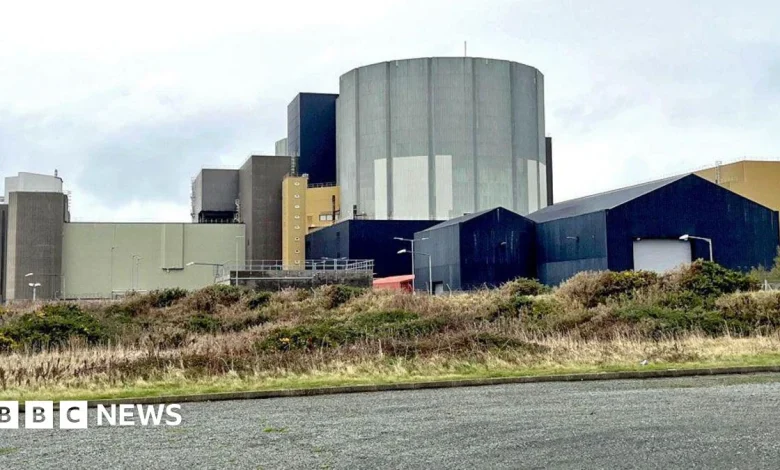Wylfa nuclear power plant plans go ahead, creating Anglesey jobs

One industry expert described the announcement as “incredible”.
Prof Simon Middleburgh, director of the Nuclear Futures Institute at Bangor University, said: “They’re smaller than the average reactor, built in a modular manner in factories and shipped to the site to be put together a bit like an Ikea chair.”
The planned SMRs “fit nicely” with the existing grid capacity at the Wylfa site, offering a similar electricity output as the old power plant currently being decommissioned, he added.
There were “a few more hurdles to go through”, he cautioned – from securing regulatory approval, building the factories required to construct the SMRs and training the workforce that will run them.
Opponents of the project point to the fact that a long-term storage facility for the UK’s nuclear waste is yet to be agreed upon and say investment in renewable energy schemes – wind, wave and tidal – is what Anglesey needs.
Dylan Morgan of campaign group People Against Wylfa-B told BBC Wales the proposed SMRs were far from “small” and were in fact “an unnecessarily big development of an unproven technology”.
“Modular reactor technologies have been touted by many companies internationally but are still only plans on paper,” he said.
The government sees them as a secure, reliable, affordable and low carbon energy system and is convinced that, with investment, SMRs will create thousands of jobs and boost manufacturing.





